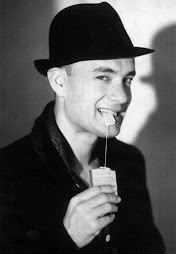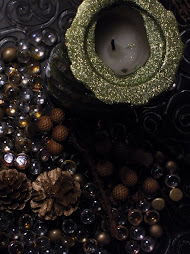
The Handmaid’s Tale
By Margaret Atwood

rating: 10 out of 10 "books"
Honestly, I’m not really sure how to begin this review other than to start by saying that “The Handmaid’s Tale” blew my mind. It was so seemingly out there yet eerily possible at the same time that after each time I set the book down I couldn’t help but think about what I had just read. Not only was this book amazing along the lines of the whole “dystopian society” theme (think “The Giver” but way more messed up), but I had a hard time tearing myself away.
Margaret Atwood’s “The Handmaid’s Tale,” is the story of a woman by the name of Offred. The story starts off in what had once been an old gymnasium. We as the readers have no idea when or where in time the story is taking place, but by the descriptions it is easy to assume it is in the near future. We come to learn that this is exactly the case, but that things are very different. For one, the United States is no more. The former U.S. is being run by a type of religious military operating under the front of a “return to traditional values.” As Offred remembers back to the past early in the story, she can recall the dangers that existed for women. However, now women “walk along the same street in pairs and no man shouts obscenities at us, speaks to us, touches us. No one whistles.” Men must be of a certain age or rank to even touch a woman. Offred even teases one of the young men and instantly feels ashamed but then finds she is not at all. She says she enjoys her power. Men have no sexual outlets in this new society, except themselves. All the pornographic magazines, films, and substitutes have been abolished. Places that used to exist with names such as “Pornomarts,” “Feels on Wheels,” and “Bun-Dle Buggies” are no more.
It all sounds pretty great right? How awesome, as a woman, would it be to not have to deal with all that crap that many men do? The story almost sounds pro-feminist when I describe the story in this manner. However, this is only one facet of the story. The larger scope, or rather the trade-off, is much worse. Men rule society completely. Women have no rights. They cannot own property or work. They are not even allowed to read or write. In this futuristic story, the birthrate is shockingly low, and most of the female population is infertile. “Handmaids” have been employed, whose sole purpose is to breed for married couples. Offred, who is part of the first generation of handmaids, describes her and her lot as “two-legged wombs: sacred vessels, ambulatory chalices.” They are each designated to one “Commander,” or high ranking male, with whom they must have sex with to try to provide a child for the Wives, the infertile married women. All the other women despise the handmaids, believing them to be slutty, but mostly jealous of them because they themselves cannot conceive. Women are divided up in the society by function and men by power and age. Unwomen, or old women and any women against the new form of government are sent to work in the “Colonies,” where they starve and eventually die trying to clean up toxic waste dumps, nuclear plant accidents, and leakages from chemical and biological warfare stockpiles of the past. Homosexuals, or “Gender-Traitors,” are also sent to the “Colonies.” Handmaids may also be sent there if they cannot provide a child for the Wives and Commanders after three tries. They are cycled between couples, so they are not with one Commander the whole time. Once a handmaid provides a “keeper,” a baby not stillborn or containing deformities or defects, she is guaranteed to never be declared an “unwoman” and sent to the Colonies.
We learn early on that Offred is not even the narrator’s real name. It is the name given to her after she has become a handmaid. The name “Offred” itself is more of a slave name, meaning she is the possession “of Fred,” who we assume is the name of her current Commander. We find out that Offred once had a real life, with a husband and a daughter of her own. We only find out in the end how they were torn apart, and how Offred became a handmaid. We even find out that she had a choice in the matter. All throughout the story, Offred tries to keep her sanity and individuality, no matter how private she must keep it. She explains, “I try not to think too much. Like other things now, thought must be rationed. There’s a lot that doesn’t bear thinking about. Thinking can hurt your chances, and I intend to last.” She doesn’t know how long her current enslavement will last, let alone any outside information other than what she can get through whispered conversations with other handmaids at the market, but she is determined to someday reunite with her husband and daughter. She holds out for some sort of message from her husband, who may or may not still be alive, of which may never arrive but is the one thing that keeps her alive.
This type of fiction has been described as “speculative fiction,” meaning the events that occur in this story could actually happen. It takes specific attitudes held about women and sees them towards potential conclusions if they keep going down the path that they are following. Many points in this story are very chilling. One of the characters, the Wife named Serena Joy, was a huge promoter and speaker on the return of women to “traditional values” and when her religious and social beliefs become reality we see the outcome of all this. It’s kind of a “be careful what you wish for” sort of moment. Even the abolishment of pornography and treatment of women that occurs in this story has such a moment. Yes women do not have to deal with the sexually abusive treatment by men anymore to a certain degree, but is their current state in the book any better? And these moments are not only for the women. I believe there are definitely some “be careful what you wish for” type moments for men. In a conversation between the Commander and Offred the Commander says of the past, “The problem wasn’t only with the women. The main problem was with the men. There was nothing for them anymore. With all the “Pornycorrners” etc., the sex was too easy. Anyone could just buy it. There was nothing to look for, nothing to fight for. Men were complaining most about their inability to feel. Men were turning off on sex even, and on marriage.” The story even gave a frightening look at what could happen in the future if we don’t do something about the environment today, evidenced by the low birthrate due to damages made to the environment by nuclear power plants, etc.
This story really impacted me. One of the worst parts was the whole description of the beginning of the end of Offred’s real life; from the loss of her job to the loss of any money she had earned, all being transferred over to her husband. She described the scene of facing her husband as if something had suddenly changed. Her husband tries to console her saying, “at least we have each other,” but the narrator reflects on how “something had shifted, some balance. I felt shrunken, so that when he (her husband) put his arms around me, gathering me up, I was small as a doll. He doesn’t mind this,” she thinks. “He doesn’t mind it at all. Maybe he even likes it. We are not each other’s, anymore. Instead, I am his.” For some reason this was just a really powerful passage to me. I find myself not even being able to imagine something like this happening to me. The organization of this book is really great too. The story slips between the past and the present in a way that doesn’t give itself up all at once. This is what keeps the reader at it for hours if possible, until he or she must put down the book to finish or attend to some other task or what not. If I could have read the story in one sitting I would have. That’s how enthralling this book was.
There is so much that I wish I could include in this review, but I know it’s already super long. All I can say is that you must read this book. It is not preachy or outwardly “feminist” in any way (not that I think there is anything wrong with the latter). I whole-heartedly give “The Handmaid’s Tale” a rating of 10 out of 10 “books.” I have been really careful in my ratings to give what I believe are the best ratings and not inflate them in any way, and I honestly feel this book deserves not but the highest rating.


















The Handmaid's Tale is the only Atwood book I've really liked to date, even though it was a rather creepy read.
ReplyDeleteI kept going "I could see this happening very easily" as we learned more about the history of the world she'd created.
This is a really good review of the book btw, better than I'd be able to come up with.
I read this years ago when I was much younger. Having read you review, I feel I need to reread it as I missed alot. Thank you for such an interesting and thought provoking post.
ReplyDeleteElena and Kylie -- Thanks so much for your really nice comments! I took a lot of time to try to get all my thoughts out about this book. I'm glad it ended up ok!
ReplyDeleteI am about to begin another "Handmaid's Tale-esque" book called "The Unit" by Ninni Holmqvist with a somewhat similar storyline except both men and women of a certain age are sent to "The Unit" (kind of like "The Colonies") where they give away their organs little by little until they die. The major difference is that their surroundings are comfortable (comfortable apartment, good food, etc.)
So check out my review on that one in the near future!